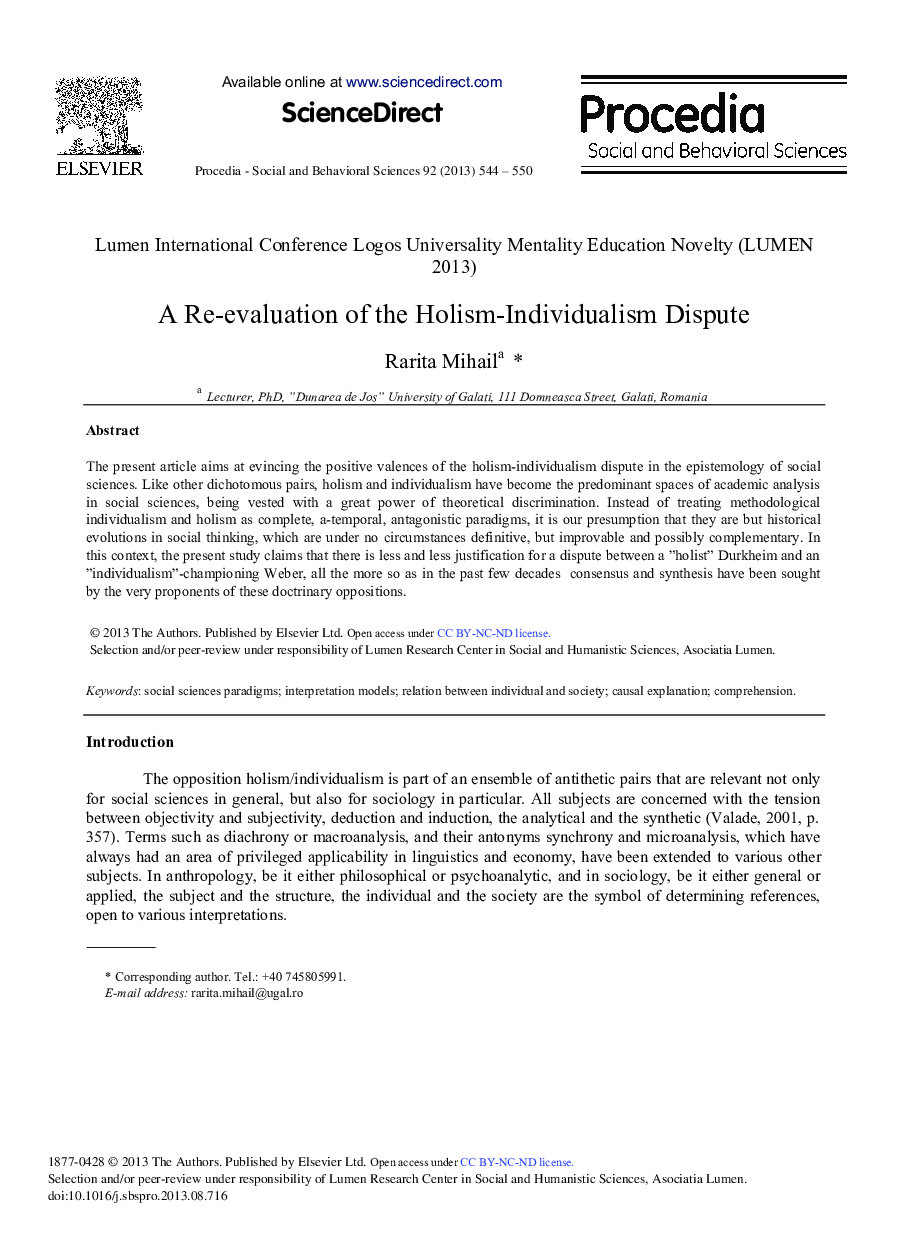| Article ID | Journal | Published Year | Pages | File Type |
|---|---|---|---|---|
| 1117972 | Procedia - Social and Behavioral Sciences | 2013 | 7 Pages |
The present article aims at evincing the positive valences of the holism-individualism dispute in the epistemology of social sciences. Like other dichotomous pairs, holism and individualism have become the predominant spaces of academic analysis in social sciences, being vested with a great power of theoretical discrimination. Instead of treating methodological individualism and holism as complete, a-temporal, antagonistic paradigms, it is our presumption that they are but historical evolutions in social thinking, which are under no circumstances definitive, but improvable and possibly complementary. In this context, the present study claims that there is less and less justification for a dispute between a “holist” Durkheim and an “individualism”-championing Weber, all the more so as in the past few decades consensus and synthesis have been sought by the very proponents of these doctrinary oppositions.
